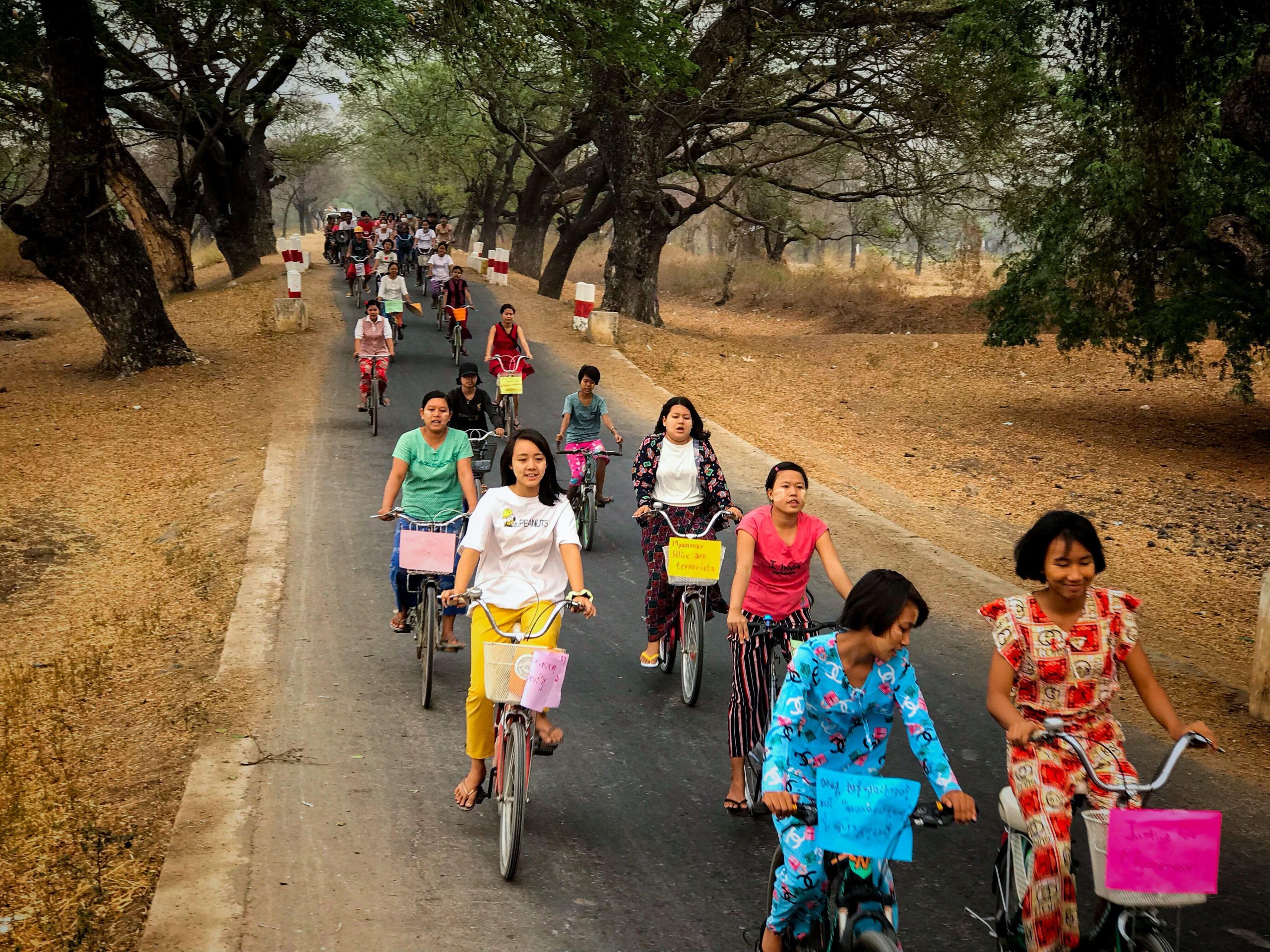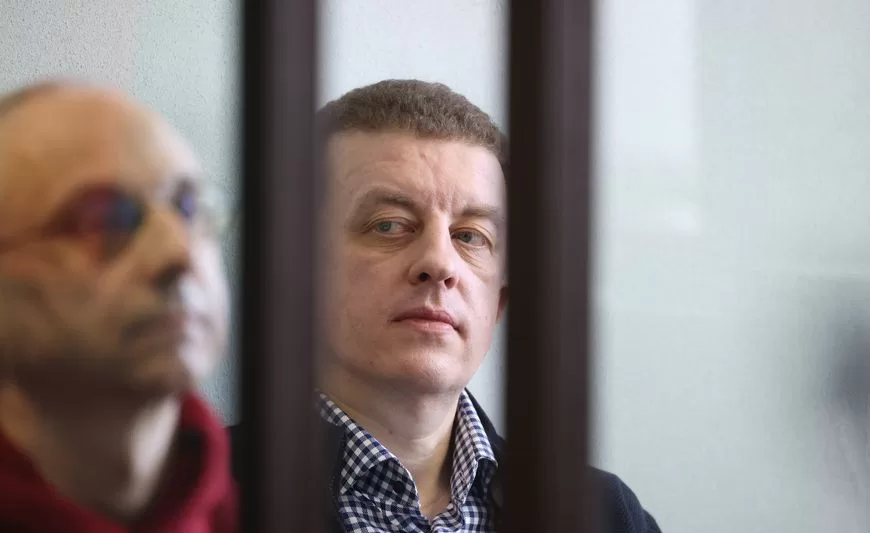This article first appeared in Volume 54, Issue 1 of our print edition of Index on Censorship, titled The forgotten patients: Lost voices in the global healthcare system, published on 11 April 2025. Read more about the issue here.
Four years ago, the military junta in Myanmar overthrew the government in a coup following a national election. While the liberal democratic National League for Democracy won by a landslide, the military alleged widespread fraud, justifying its seizure of power.
Tens of thousands of people took to the streets for mass protests, and the military responded with brutal violence.
Civil defence forces were formed in a huge movement of resistance, including by ethnic minority rebel groups that have fought with the government for decades. Violence has escalated, and the coup continues to claim the lives of thousands of civilians (a conservative estimate) and displace millions more.
In post-coup Myanmar, the internet has become a weapon and the military government has carried out hundreds of internet shutdowns and heavily censored social media in an effort to curb insurgency.
Before 2021, several peace organisations operated in the country, including those advocating for a gender-inclusive process to end the conflict between the government and ethnic armed groups. These include the Alliance for Gender Inclusion in the Peace Process (AGIPP), the Mon Women’s Network, and the Gender Equality Network.
But the websites for these organisations are now broken or no longer exist. The women who run them have had to shift their attention towards a more urgent fight to stop the widespread sexual and gendered violence being committed by the current regime while attempting to operate within a “digital dictatorship”, as labelled by UN human rights experts. Many of these women have fled their home country.
Unable to return to Myanmar, they have built remote digital activism movements, such as the Sisters2Sisters campaign – an online organisation working to build global solidarity for Myanmar’s women and orchestrate online campaigns from outside the country. This includes exposing mass sexual violence, often against ethnic minority women and girls, extrajudicial killings of young people, and violence towards other marginalised communities, such as LGBTQ+ groups.
Among the millions of young people who have left the country are Flora and Elle (not their real names), who fled from Myanmar to neighbouring Thailand in 2023. Both worked in gender and youth-focused resistance movements and now do advocacy work from abroad. In order to work within the confines of Myanmar’s censorship and Thailand’s amenability to the junta, they take refuge in pseudonyms, discreet meeting rooms and virtual private networks (VPNs). I spoke to them both over a joint call, secured via VPN.
Elle, from Sagaing Region, told Index: “Because of the fighting between the resistance forces and the military, the military shuts down the internet intentionally because they don’t want [news of] the killings or massacre to spread online.”
I first met Elle in Thailand at a meeting about gender-focused advocacy in Myanmar. I asked her about the countless organisations whose websites have been deleted or have stopped posting online.
“[This] is one of the major problems with organisations working on women’s rights [and human rights],” she said. “When we publish or announce cases, we have to be aware of the sensitivities of the data and [the danger of] publishing from official websites and social media.
“The Myanmar military has tracked down these posts. They don’t target every post but they have a team that specifically looks at data and news from [these] organisations – and if it’s within their reach, the [organising] in that township will be shut down.”
Flora comes from Kayin State, a district largely populated by Kayin people (also known as Karen people) – an ethnic minority group that has become a hub for the resistance movement and has been targeted by the military since 2021. She herself is Kayin.
“As active [resistance organisation] members, we face a lot of difficulties and challenges,” she said. “Because of the internet shutdowns, we don’t have internet access, and … the military banned VPNs.”
In January this year, the junta passed the Cybersecurity Law which, it claims, aims to “protect and safeguard the sovereignty and stability of the nation from being harmed by cyberthreats, cyberattacks or cyber misuse through the application of electronic technologies”.
Within the wide-reaching law is an official ban on unauthorised use of VPNs, with a prison sentence of up to six months and a fine if someone is found with one on their device.
“This impacts every organisation that has supported democracy,” Flora explained. “If we use a VPN and they find it on our phones, they will arrest and prosecute us.”
Digital access has been a crucial part of the resistance movement, and organisers and protesters have been targeted for digital communications since the February 2021 coup, leading to arrests and shutdowns.
“Look at history,” said Flora. “In 1988, there was no internet and information was locked down. We didn’t know what really happened on the ground so it was easy for the government to control information.”
That was the year of the 8888 Revolution, which saw youth-led resistance to the government and nationwide protests in support of democracy and human rights. A violent response saw more than 3,000 people killed (with particular cruelty inflicted on ethnic minorities such as the Kayin) and hundreds of thousands displaced. The similarities between today and 1988 show how Myanmar has both a turbulent past and a longstanding legacy of community action.
But Flora said there was a difference between then and now. “Since the beginning, the military has tried to control the internet but the young generations know the effects of technology,” she said. “We have VPNs and we have strategies to continue our activities. Youth groups spread knowledge about democracy even with the military trying to cut the internet.”
Pro-democracy groups organise largely through encrypted online platforms such as Signal, using VPNs and burner phones. They gain information on the crimes of the junta against civilians, which includes mass rape and forcing women to become domestic labourers when their husbands have been killed or sent to war.
Platforms such as Sisters2Sisters also continue to publish these crimes and call for the international community to take action.
There is another unexpected way that Myanmar’s citizens can continue to communicate freely with the outside world – by using Starlink, the global satellite internet system owned by Elon Musk’s SpaceX.
The system is not licensed in Myanmar, but illegal services still operate and Elle and Flora use it to talk to their families back home.
“It’s the only way, so there are secret shops for locals – our families go to these shops to call us,” said Elle.
In Thailand, safe spaces in Bangkok offer hubs for exiled female activists to reconvene, holding inter-ethnic dialogues and combining the efforts of groups that were previously divided on lines of ethnicity and religion. These conversations, along with communication with groups within Myanmar, have helped to consolidate organising efforts into mass insurgencies of rebel fighters who are continuing to gain ground in Myanmar’s jungles.
Digital organising is key to gaining international awareness, and Elle has been working hard to get multilateral bodies to recognise and act on the atrocities.
“No matter how much we are trying to support the rights of women and LGBTQ+ communities, we need support from the international community,” she said. Even though the UN has a special mission to Myanmar, Western governments have shown relatively little outrage at the ongoing abuses, and there has been very little military aid for resistance forces.
For campaigners such as Flora and Elle, their activism represents more than a political stance – it’s a deeply personal pursuit, with their livelihoods and the safety of their families hinging on it. Their work is fuelled by the hope that by exposing the junta’s crimes and continuing to grow insurgency movements, it will pressure global leaders to act and the junta’s rule will be shortened.
But even though they are no longer in the country, the new Cybersecurity Law shows that they are increasingly under threat.
“We will be prosecuted because we are working on human rights,” said Flora. “If [you] share information against the military, you are criminalised. I am so worried about this. Even if we are outside Myanmar, the law applies to every Myanmar citizen. I am really worried about our activities because access to information is so important.”
When asked if they could safely return to Myanmar to visit their families, both of them give painful laughs. “In Myanmar, everyone has a list of criminal charges. If they want to arrest you, they will always have a reason to do so,” said Elle.
Within the sanctuary of (relative) freedom in Thailand, Flora and Elle are continuing their movement online.
“We need to know what is happening in Myanmar,” said Elle. “Right now, every youth and woman is living in fear because [the junta] restricted the internet … to cover [up] all the injustices.”






